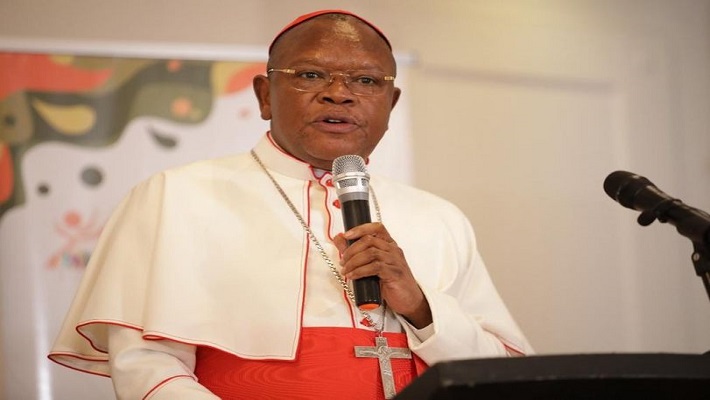By Paschal Norbert
NAIROBI, JANUARY 26, 2024 (CISA) – “Indeed, this year (2024) marks a significant milestone, as it has been 20 years since our first thematic reflection in 2004, which similarly called for a joint journey of the bishops of Africa and Europe under the theme “Communion and Solidarity between Africa and Europe”. This historical continuity underscores the enduring and evolving commitment to our shared journey, enriched and invigorated by the Church’s current emphasis on synodality,” said Cardinal Fridolin Ambongo Besungu, OFM Cap., in his opening address at the 7th Seminar of Bishops of Africa and Europe in Nairobi.
20 bishops from the Symposium of Episcopal Conferences of Africa and Madagascar (SECAM) and the Council of European Bishops’ Conferences (CCEE) gathered in Nairobi for a three-day seminar from January 23 to 26, 2024, to deliberate on their shared responsibilities in evangelization, mission, and pastoral care in light of the current developments in the universal Church; the Apostolic Constitution “Praedicate Evangelium” and the Synodality.
In his opening address, Cardinal Ambongo, the president of SECAM underscored the profound relationship between the two continental bodies and outlined the historical achievements of the seminars since its inception in 2004.
“Since the inaugural programming meeting in 2004, this seminar marks the seventh of its kind and the fourth to take place in Africa. Following the initial Rome meeting, the first seminar was held in Cape Coast, Ghana, in 2007, focusing on the theme of New Forms of Slavery. This was followed by the second seminar in Liverpool, England, in 2008, which delved into the theme of Migration. The third seminar took place in Abidjan, Ivory Coast, in 2010, concentrating on the theme of African Pastoral Agents in Europe. The fourth seminar was convened in Rome, Italy, in 2012, with a focus on Evangelization. Subsequently, the fifth seminar occurred in Maputo, Mozambique, in 2015, discussing the theme of the Family. The sixth seminar was held in Fatima, Portugal, in 2018, exploring the theme of Globalization,” he narrated.
Ambongo said the seminar in Nairobi is significant as it comes on the backdrop of two ‘pivotal developments’ in the universal Church, which he outlined as: “Firstly, the Apostolic Constitution “Praedicate Evangelium” represents the culmination of a near-decade-long path of reform paralleling the pontificate of Pope Francis. This constitution encapsulates a journey of transformation and renewal within the Church.”
“Secondly, the concept of synodality is brought to the forefront, emphasizing the Church as a mystery of communion. These developments collectively beckon the Church to revisit and reengage with the profound insights of the Second Vatican Council. The Apostolic Constitution “Praedicate Evangelium” not only echoes the Council’s emphasis on evangelization and the pivotal role of the laity but also reinforces it.”
In light of the theme for the seminar, “Synodality: Africa and Europe Walking Together,” the archbishop of Kinshasa called for genuine collaboration and mutual respect “in light of the current dynamics of synodality that the Church is experiencing.”
“Commemorating two decades of our fraternal relationship, this seminar also serves as a moment for introspection and review. Our goal is to boldly relinquish any practices or approaches that hinder our collective progress. Instead, we will adopt strategies and principles that strengthen our collaboration and communion in the mission of spreading the Gospel of salvation and fostering the growth of Christ’s Church on our continents,” he noted.
Cardinal Ambongo also explained the context in which his message summarizing the responses of the Episcopal Conferences of Africa and Madagascar to the “Fiducia Supplicans” as inspired by the Synodal spirit.
“In our collaborative journey, the synodal process inspires us, particularly as Continental Organizations, to preserve the faith and culture of diverse peoples. This approach is essential to mitigate the risks of uniformity and centralism, as highlighted in Chapter 19, Section D of the Synthesis of the First Session of the Synod on Synodality,” said Ambongo.
